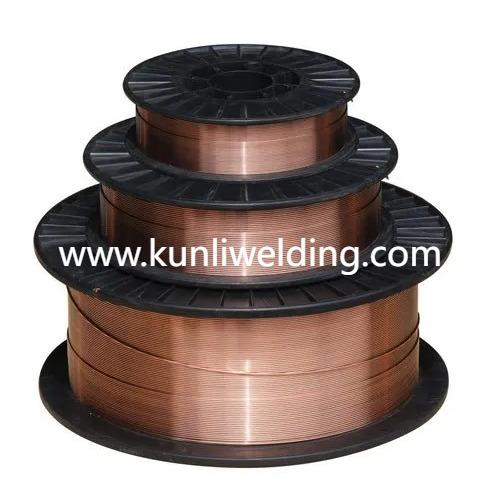In today's globalized manufacturing landscape, sourcing materials responsibly has become a growing concern. Aluminum Alloy Welding Wire Suppliers , once evaluated solely on technical specifications and delivery times, are now being viewed through a broader lens that includes ethical sourcing, environmental stewardship, and supply chain transparency. As sustainability and accountability move up the agenda for many industries, companies are looking for partners who can demonstrate where their raw materials come from and how they are processed.
The growing attention to ethical supply chains is no longer limited to consumer goods. Even technical sectors such as automotive, aerospace, and green energy are aligning with responsible material sourcing. Aluminum welding wire, essential in many of these sectors, has become part of this conversation. Clients are increasingly asking whether the wire they purchase has a transparent origin. They want assurances that the materials were sourced from environmentally conscious mines and refined using practices that support worker safety and fair labor.
Leading Aluminum Alloy Welding Wire Suppliers have begun to respond to this demand by improving traceability throughout their networks. From the initial alloying process to final packaging, suppliers are documenting each step to build trust with industrial clients. This shift has led to a noticeable change in supplier selection criteria—technical quality alone is no longer sufficient. Companies now seek detailed traceability reports and assurance that environmental and social standards were respected at each stage.
One area where transparency particularly matters is in the fabrication of components for electric vehicles and renewable energy infrastructure. These industries often present themselves as champions of sustainability, and using ethically sourced aluminum helps reinforce that message. Choosing a supplier with traceable aluminum inputs ensures that the values embedded in the finished product are consistent with the brand's image and customer expectations.
Another compelling reason for transparency is risk management. Global supply chains have faced increasing pressure from geopolitical shifts, extreme weather events, and fluctuating commodity markets. Manufacturers are no longer willing to rely on opaque sourcing models that expose them to regulatory, financial, and reputational risks. Knowing exactly where materials originate—and ensuring those regions meet compliance standards—helps companies future proof their operations.
In response to this trend, some Aluminum Alloy Welding Wire Suppliers are investing in digital systems that monitor sourcing pathways in real time. These tools can provide clients with detailed logs that trace every coil of welding wire back to its original material batch. For engineers and procurement managers, such insights are invaluable when managing audits, certifications, or simply ensuring alignment with corporate responsibility policies.
As the call for ethical production continues, selecting the right supplier is more than a purchasing decision—it becomes a strategic move. Fabricators and manufacturers that prioritize traceable and responsible sourcing are more likely to earn long-term loyalty from clients who care about more than just performance. They also align themselves with global policy shifts encouraging clean technology and transparent production.
For professionals exploring reliable options in this space, the ER5183 aluminum welding wire is an example of how quality and responsibility can coexist. Manufacturers offering this product are focusing not only on delivering consistent performance but also on providing customers with confidence in their supply chains. The increased demand for accountability may reshape the welding industry, driving broader change across the metals market.To learn more about traceable, high quality aluminum wire options, visit www.kunliwelding.com .




